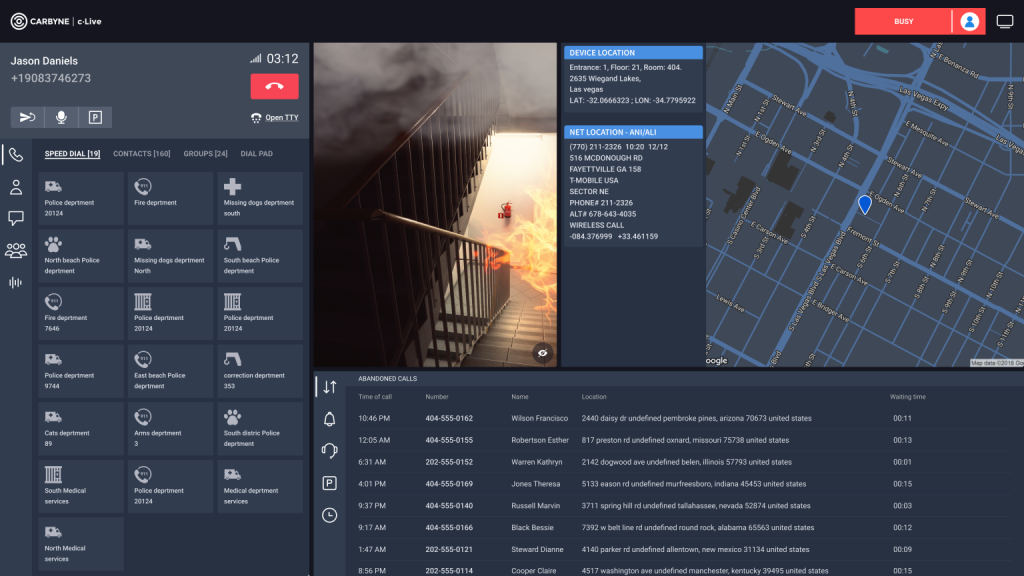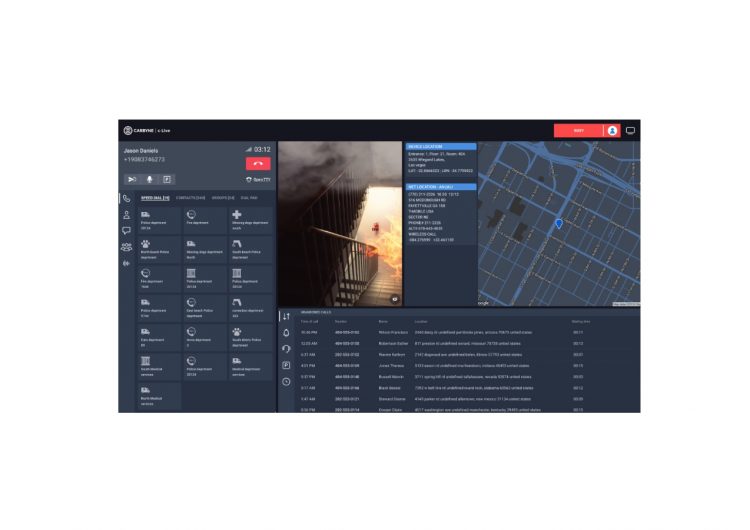
Carbyne, a next generation emergency-response technology firm whose services have been in heavy demand during the coronavirus pandemic to help those in need, said former Israeli Prime Minister Ehud Barak will step down from its Board, the latest move in its transition from a startup to a global company.
Effective May 1, Mr. Barak will be replaced by Founder and CEO Amir Elichai, who started the company in 2014 and whose backers include Peter Thiel’s Founder’s Fund.
“It’s been a privilege and honor to lend my knowledge and experience to Carbyne during its early growth phases,” Mr. Barak said. “I’m extremely proud of what the company has been able to accomplish and of working with this group of young leaders to revolutionize the emergency communications industry – while saving lives in the process. After nearly six years involved with Carbyne, it is time for me to focus on my other endeavors.”
The news comes as Carbyne has done more business in the U.S. and relocated its headquarters from Israel to New York, where Mr. Elichai now works and resides. The company, which employs Amazon.com Inc’s AWS could, may also seek additional board directors who bring experience at large multinational companies or have taken firms public on major stock exchanges.
“Mr. Barak was instrumental in helping Carbyne grow from its early stages into the global technology company that it is today,” Mr. Elichai said.
Mr. Elichai, who studied at New York University, spent several years working with startups before founding Carbyne. The inspiration for the company came when he and a date were mugged and he was shocked by the slow response time by emergency responders. Once the company was founded, Mr. Elichai took on highly-experienced advisors including President George W. Bush’s secretary of homeland security Michael Chertoff and ex-commissioner of London’s Metropolitan Police Lord Bernard Hogan-Howe.
Prior to the coronavirus, Carbyne had already worked with nearly 30 counties in the U.S. In mid-March, Carbyne began helping 911 responders in New Orleans, Louisiana, which has been overwhelmed by emergency calls since the pandemic began. Carbyne’s technology allows 911 centers to request access to locations and camera video from emergency callers, speeding up response times. Carybne can send requests to emergency callers via SMS texts or Facebook Inc.’s WhatsApp messages.
The Carbyne system itself can be put in place fast: The technology was implemented just three days after Carbyne spoke to New Orleans officials. In addition to New Orleans, Carbyne has also helped local emergency responders in Texas and Mississippi, along with 10 other locations in countries including Peru, Chile, and Israel.
Even as countries attempt to resume normal life, emergency call volume will likely remain elevated for some time. That suggests cities that have adopted Carbyne’s technology during the crisis will keep it in place and others may follow suit.
Carbyne has partnered with technology giants to provide its service. Last year, it linked up with Alphabet Inc.’s Google in Mexico, where the two companies have initiated service in 11 states, delivering emergency location and expediting incident resolution for millions of calls.
The company also works with IT and networking leader Cisco Systems, Inc., to deliver cloud-based solutions for emergency dispatch centers. As a partner, Carbyne will be offered as part of Cisco Kinetic for Cities, a secure data platform that provides automated data sharing across community infrastructure, smart city solutions, applications and connected devices.
In addition to Mr. Barak’s resignation from the Board, all shares owned by Mr. Barak’s Sum (E.B) LLP are being moved to IBI and will be sold in the coming weeks to a new investor who has been identified, the company said.
Contact:
John Jannarone, Editor-in-Chief
www.CorpGov.com
Twitter: @CorpGovernor







